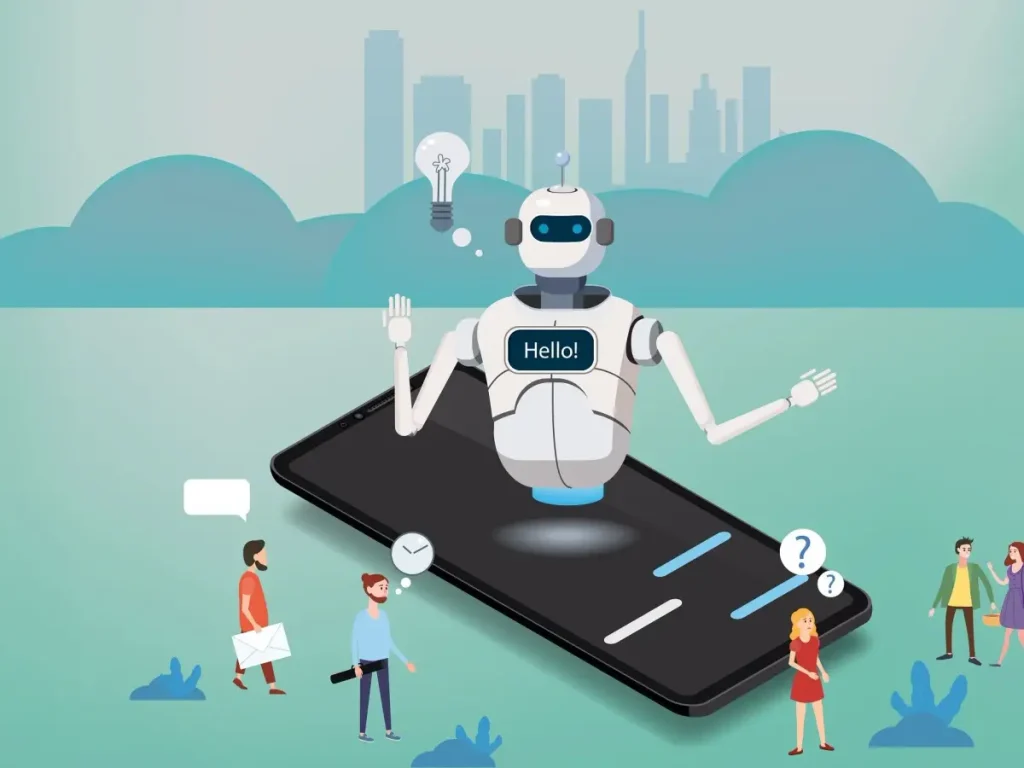Artificial intelligence (AI) is changing the way businesses interact with customers, making service faster, smarter, and more personalized. From chatbots that answer questions in seconds to AI assistants that remember your preferences, the shift to AI-driven customer support is reshaping industries across the globe. Companies using AI are seeing significant benefits, such as faster problem resolution and improved customer satisfaction.
Chatbots that never sleep
From chatbots that never sleep to AI assistants that understand context better than ever before, artificial intelligence is fundamentally transforming how businesses interact with their customers. According to McKinsey Global Institute, organizations implementing AI-driven customer service solutions have seen resolution times decrease by up to 40 per cent, and customer satisfaction scores improve by an average of 15 per cent.

The shift isn’t just about efficiency. It’s about reimagining the entire customer experience ecosystem. Where traditional call centers once struggled with long wait times and inconsistent service quality, AI-powered systems now provide 24/7 availability, instant responses, and personalized interactions that adapt to individual customer preferences and histories.
Real-World Examples Across Industries
In the banking sector, JPMorgan Chase’s virtual assistant handles over 5 million customer interactions monthly, resolving 78 per cent of inquiries without human intervention, according to IBM’s 2024 AI in Finance Report. The system processes everything from account balance queries to complex loan applications, reducing average response time from 15 minutes to under 30 seconds.
E-commerce giant Amazon has revolutionized online shopping through its AI-powered recommendation engine and customer service chatbots. Zendesk’s 2024 Customer Experience Report reveals that AI-driven support systems in e-commerce have improved first-contact resolution rates by 35 per cent, with 89 per cent of customers reporting satisfaction with automated responses for basic inquiries.
Healthcare presents perhaps the most compelling transformation. Kaiser Permanente’s AI-powered appointment scheduling and symptom checker system now handles 2.3 million patient interactions annually, according to Reuters Health. The system triages patients efficiently, scheduling appropriate care levels and reducing emergency room visits for non-urgent cases by 22 per cent.
Impact on Customer Satisfaction
The numbers speak volumes about AI’s impact on customer experience. Pew Research Center’s survey noted that 73 per cent of consumers now prefer AI-assisted customer service for routine inquiries, citing faster resolution times and consistent service quality as primary advantages.
Customer satisfaction metrics have improved dramatically across AI-implemented organizations. According to Zendesk’s analysis of over 50,000 customer service interactions, AI-powered support systems achieve:
– 91 per cent accuracy rate in issue classification
– 65 per cent reduction in average handling time
– 28 per cent improvement in customer satisfaction scores
– 24/7 availability with zero wait times for initial response
Moreover, BBC’s technology division reported that businesses using AI customer service solutions experience 40 per cent lower operational costs while maintaining higher service quality standards. The cost savings stem from reduced staffing needs for routine inquiries and improved efficiency in complex problem resolution.
The Future: Human Agents & AI Working Together
Contrary to fears about AI replacing human workers entirely, the most successful implementations focus on augmentation rather than replacement.
IBM’s Future of Work study indicates that the most effective customer service operations combine AI efficiency with human emotional intelligence and complex problem-solving capabilities.
Human agents remain crucial for handling sensitive situations, complex technical issues, and cases requiring empathy and creative problem-solving. McKinsey projects that by 2026, optimal customer service operations will feature AI handling 70 per cent of routine inquiries while human agents focus on high-value, complex customer relationships.
The future model positions AI as the first line of support, capable of resolving straightforward issues instantly while seamlessly escalating complex problems to human specialists with complete context and suggested solutions. This hybrid approach maximizes both efficiency and customer satisfaction.
Training programs are evolving to prepare customer service professionals for this AI-augmented future. Rather than competing with AI, human agents are learning to leverage these tools to provide more meaningful, strategic customer interactions that drive long-term business relationships.
As AI technology continues advancing, we can expect even more sophisticated natural language processing, emotional intelligence capabilities, and predictive analytics that anticipate customer needs before problems arise. The transformation of customer service through AI represents not just technological progress, but a fundamental shift toward more responsive, personalized, and effective customer experiences across all industries.
From chatbots that never sleep to AI assistants that understand context better than ever before, artificial intelligence is fundamentally transforming how businesses interact with their customers. According to McKinsey Global Institute, organizations implementing AI-driven customer service solutions have seen resolution times decrease by up to 40 per cent while customer satisfaction scores improve by an average of 15 per cent.
The shift isn’t just about efficiency. It’s about reimagining the entire customer experience ecosystem. Where traditional call centers once struggled with long wait times and inconsistent service quality, AI-powered systems now provide 24/7 availability, instant responses, and personalized interactions that adapt to individual customer preferences and histories.

